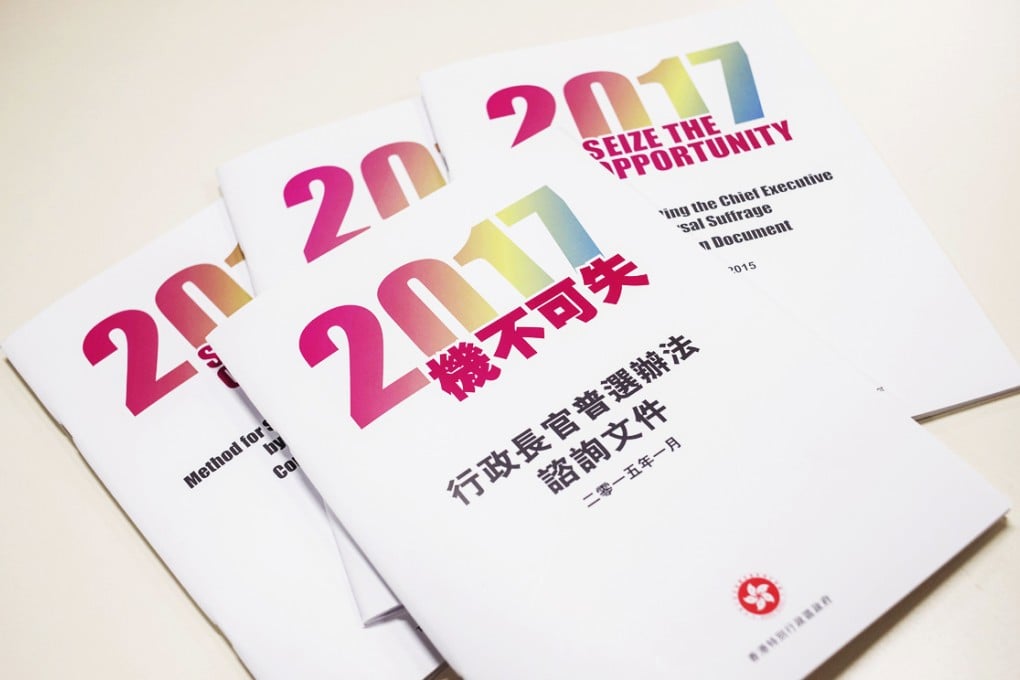Let's be pragmatic about 2017 poll
Hong Kong's quest for democracy has been tougher than expected, as evidenced by the Occupy protests over the past months.

Hong Kong's quest for democracy has been tougher than expected, as evidenced by the Occupy protests over the past months. Chief Secretary Carrie Lam Cheng Yuet-ngor yesterday made no bones about the daunting challenges ahead as she launched the second round of consultation on political reform. Far from a straight thoroughfare ahead, our road to universal suffrage looks more bumpy and the goalpost increasingly remote.
That should not stop us from moving forward, though. The public is glad that law and order has been largely restored. It is time we moved out of the shadow of the Occupy protests and discuss the detailed electoral arrangements in a rational manner.
That the consultation paper contains few surprises is to be expected. The task force on constitutional reform has no choice but to adhere to the tight framework imposed by the state legislature in August. The 79-day street blockades not only divided the city more than ever, they also dashed hopes of Beijing offering any compromise.
But it is still up to Hong Kong to make full use of the room available and try to hammer out a reform package that is legally and politically acceptable. The issues mapped out in the 68-page document offer some useful guidance. They include the formation of the committee to nominate the chief executive candidates; the thresholds for hopefuls to come forward and to become formal candidates; and the polling methods for voters. They are crucial to the successful implementation of the one person, one vote formula under the Basic Law.
Worryingly, pan-democrat lawmakers still adhere to a confrontational approach and have vowed to veto proposals that strictly follow Beijing's framework. While their stance may still appeal to certain quarters in society, public sentiment is ever-changing. If recent opinion surveys are any reference, support for confrontational tactics has been waning.
The room to manoeuvre may not be large. But Lam is right in saying that confrontation only reduces the options. The choice is clear: give everyone a vote in the chief executive race rather than settle for the status quo. It is incumbent upon us to make the most of the opportunities within the rules given and come up with a package that stands a good chance of approval. With pragmatism and compromise, one person, one vote in 2017 can be achieved.
